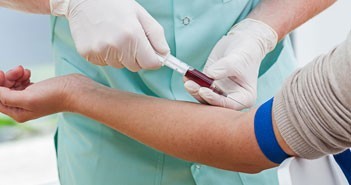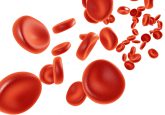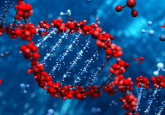Novel biomarkers may enable early pancreatic cancer detection

Collaborative research from Kuramoto University, Tohoku University and the National Cancer Center of Japan (all Japan) has identified potential blood-based biomarkers, which may be utilized to improve the early detection of pancreatic cancer.
The study, recently published in PLoS ONE, aimed to identify novel biomarkers to improve the reliability of detecting early-stage pancreatic cancer due to the lethal nature of the disease. The team quantified plasma proteins that previous research had demonstrated were upregulated in invasive ductal adenocarcinoma of pancreas cells (IDACP).
The team utilized two proteomic strategies to identify potential biomarkers; antibody-based proteomics and liquid chromatography-tandem mass spectrometry-based proteomics. Amongst the 260 genes they investigated, they focused on 130 encoded proteins with known function for which antibodies were available.
“We selected 130 proteins and their expression levels were comprehensively measured in the blood plasma of 106 healthy subjects and 164 pancreatic cancer patients using antibody-based proteomics,” commented lead researcher Sumio Ohtsuki. “As a result, we found 23 proteins that had significantly changed in the plasma between the two groups.”
After identifying the biomarker candidates, the team utilized high-throughput selected reaction monitoring or multiple reaction monitoring methodologies, combined with an automated sample preparation system, micro liquid chromatography and auto analysis system, to quantify the plasma proteins from healthy controls and invasive ductal adenocarcinoma of pancreas cell samples on a large scale.
The team observed that insulin-like growth factor-binding protein (IGFBP) 2 and 3 can be utilized to discriminate IDACP patients at an early stage from healthy controls. Additionally, the results suggested that IGFBP2 appeared to be increased in risk diseases of pancreatic malignancy, such as intraductal papillary mucinous neoplasms.
The results of the study indicate that diagnosis of IDACP using the combination of the already identified carbohydrate antigen 19-9 biomarker (CA 19-9) and IGFBP2 and IGFBP3 is significantly more effective than CA 19-9 alone. These novel biomarkers may be utilized as compensatory biomarkers for CA 19-9 and findings would suggest that early diagnosis with this biomarker combination may improve the prognosis of IDACP patients.
Furthermore, the researchers analyzed approximately 600 additional samples which included various forms of cancer, proposing that IGFBP 2 and IGFBP 3 may be effective in screening for stomach, colorectal and hepatocellular carcinoma.
“These diagnostic markers are expected to contribute to the improvement of cancer prognosis, because early detection provides patients with a better chance of complete cure through surgery.” elaborated Professor Ohtsuki. “Additionally, the new mass spectrometry system that we developed in this study is expected to make the analysis of a much large number of specimens possible in future clinical practice.”
Sources: Yoneyama T, Ohtsuki S, Honda K et al. Identification of IGFBP2 and IGFBP3 as compensatory biomarkers for CA19-9 in early-stage pancreatic cancer using a combination of antibody-based and LC-MS/MS-based proteomics. PLoS ONE.doi: 10.1371/journal.pone/0161009 (2016) (Epub ahead of print);
www.mdtmag.com/news/2016/10/discovery-blood-biomarkers-early-pancreatic-cancer-detection




